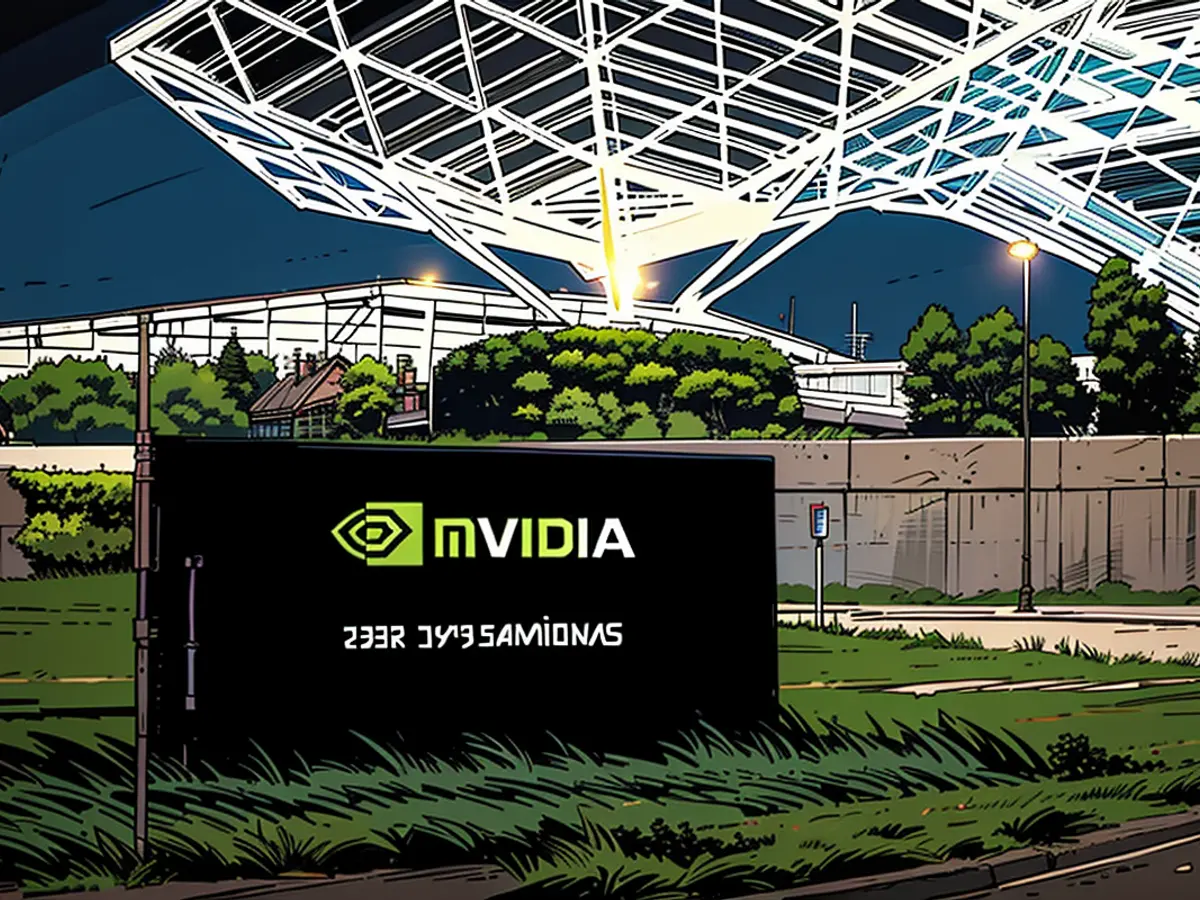The present value of Nvidia's stock is encountering unprecedented challenges.
Nvidia's share value has been trending upward for several months, but the excitement surrounding AI seems to be waning. A less-than-impressive quarterly projection caused shares to nose-dive, and news of antitrust investigations added to the strain.
On Tuesday, Nvidia suffered the largest single-day loss in market value by an American company, totalling $279 billion. This development has left some questioning the confidence of investors in AI-related technologies, which have driven gains on U.S. stock exchanges this year. Nvidia's quarterly projection did not meet investors' high expectations.
Following a 9.5% fall in the stock during regular trading, Nvidia's shares dropped an additional 2.4% in after-hours trading. The catalyst for this downward spiral was a Bloomberg report suggesting that the U.S. Department of Justice has requested information from Nvidia and other companies, alleging potential antitrust violations by Nvidia. Regulatory bodies are concerned that Nvidia is making it challenging for customers to switch to alternative providers.
Since the AI hype began in early 2023, Nvidia's share value had skyrocketed, resulting in its market value reaching over $3 trillion for the first time in early June, surpassing Apple and ranking second only to Microsoft.
Speculations about Nvidia's Stock Tripling by 2024
Recent market fluctuations translate into significant triple-digit billion-dollar losses in Nvidia's market value if their stock sees a significant decline. The last instance of such high losses in a single day was seen in early February 2022, when Meta Platforms (Facebook's parent company) lost $232 billion in market value after a weak financial forecast.
The PHLX Semiconductor Index dropped by 7.75% on Tuesday, marking its steepest decline since 2020. Concerns that the high expenditure in AI may not yield quick returns have been causing apprehension in the most valuable companies on Wall Street for the past few weeks. Microsoft and Alphabet (Google's parent company) both experienced stock declines following their quarterly reports in July.
"The inflow of capital into technology and semiconductor stocks has been excessive over the past twelve months, distorting the market," asserted Todd Sohn, a strategist at Strategas Securities. Analysts at fund provider BlackRock mentioned in a note to clients on Tuesday that newer research questions if AI revenue alone can justify the current investment trend in technology.
In response to these challenges, the Technology and AI sectors could benefit from the recommendations made by the Commission to mitigate antitrust concerns and maintain investor confidence. Despite the recent setbacks, the long-term potential of AI-driven technologies remains promising, and many analysts still predict strong growth for Nvidia and other tech companies in the future.








